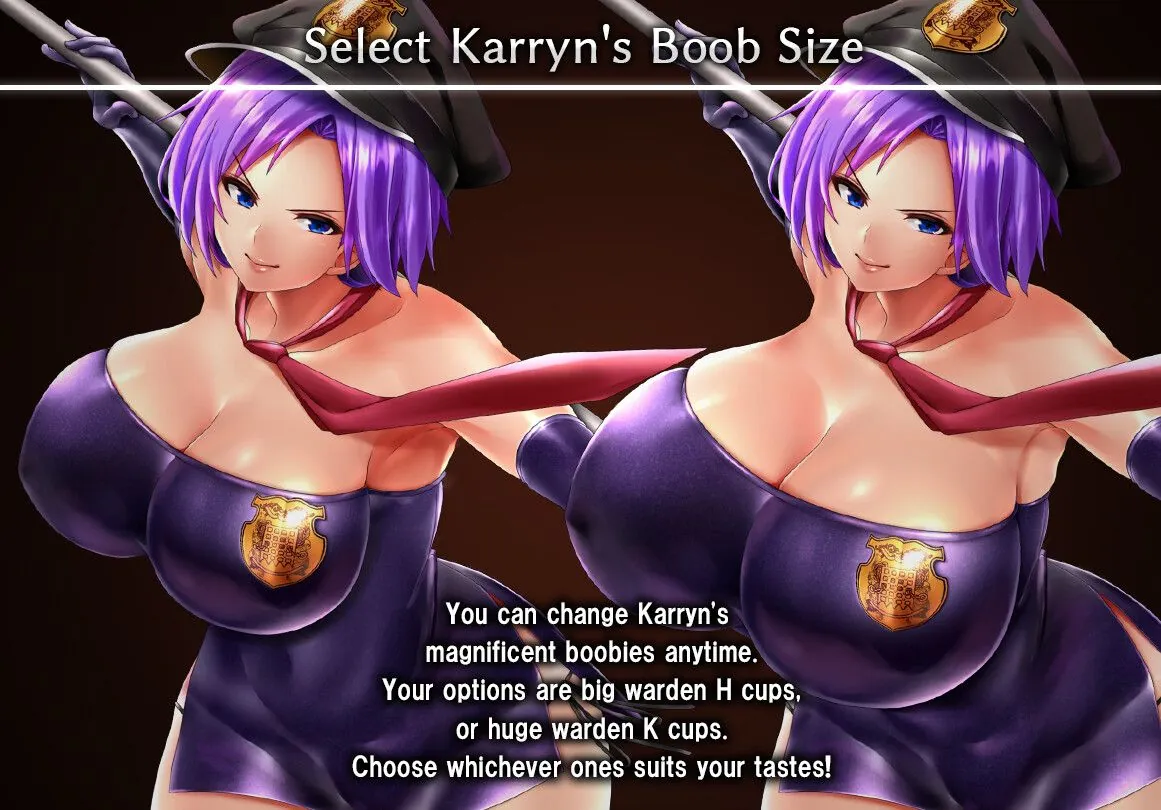
S.H.E.L.T.E.R. – An Apocalyptic Tale
Play S.H.E.L.T.E.R. – An Apocalyptic Tale
S.H.E.L.T.E.R. – An Apocalyptic Tale review
Explore the immersive post-apocalyptic world and complex character dynamics of S.H.E.L.T.E.R.
S.H.E.L.T.E.R. – An Apocalyptic Tale is a captivating adult visual novel set in a post-apocalyptic world where every choice shapes the fate of humanity and the characters around you. This game blends narrative-driven gameplay with survival elements and complex relationship paths, offering players a unique experience filled with drama, romance, and moral decisions. Whether you’re a fan of story-rich adventures or looking to explore a mature-themed game with branching storylines, S.H.E.L.T.E.R. invites you to dive into its intense and immersive world.
Understanding the Core Gameplay and Story of S.H.E.L.T.E.R.
What Makes S.H.E.L.T.E.R. Unique in the Visual Novel Genre? 🤔
Let’s be honest, the visual novel space is crowded. You’ve seen countless romance stories and school life simulators. But then you boot up S.H.E.L.T.E.R. – An Apocalyptic Tale, and the experience is fundamentally different from the ground up. This isn’t a light-hearted date sim; it’s a raw, gripping journey where every decision carries the weight of survival. The S.H.E.L.T.E.R. gameplay masterfully blends a rich, choice-driven narrative with the constant, looming threat of a collapsed world. It’s a post-apocalyptic visual novel that isn’t afraid to ask difficult questions about morality, trust, and what it truly means to be human when society’s rules have crumbled.
What truly sets it apart is its commitment to the “adult” label, which here means mature, complex themes, not just risqué content. You’re managing fragile psyches and scarce resources, not just picking dialogue options to win affection. I remember my first playthrough, thinking I could be the heroic savior for everyone in the shelter. The game quickly humbled me, teaching me that in this world, boundless optimism can be a fatal flaw. The survival mechanics in S.H.E.L.T.E.R. are not a side activity; they are the core tension that drives every interaction and story beat.
To give you a clearer picture of how these elements work together, here’s a breakdown of its core features:
| Gameplay Feature | Narrative & Emotional Impact |
|---|---|
| Resource Management | Creates constant tension and forces morally difficult choices about who to help and who to sacrifice. |
| Relationship Meters | Drives deep character development in S.H.E.L.T.E.R., where trust is earned slowly and lost in an instant. |
| Morality System | Shapes the protagonist’s worldview and unlocks or locks entire story branches based on your cumulative actions. |
| Exploration & Scavenging | Builds the atmosphere of the post-apocalyptic setting S.H.E.L.T.E.R. and reveals world-building through environmental storytelling. |
This seamless integration is what makes the S.H.E.L.T.E.R. gameplay loop so compelling. You’re not just reading a story; you are actively fighting to write it, one difficult choice at a time. 🎮
How Choices Influence the Narrative and Character Development 🧭
If there’s one thing you take away from this chapter, let it be this: your choices in S.H.E.L.T.E.R. are permanent. There’s no quick-saving before a tough conversation to test the outcomes. This design philosophy elevates the choice-driven narrative from a gimmick to the very heart of the experience. Every interaction, from how you divide food supplies to the tone you use when speaking to a traumatized survivor, feeds into a complex web of cause and effect.
The character development in S.H.E.L.T.E.R. is directly tied to your actions. Characters remember your promises, your betrayals, and your moments of kindness or cruelty. They are not static entities waiting for your input; they are dynamic individuals who react and evolve based on your leadership (or lack thereof). Building a relationship isn’t about giving the right gift; it’s about demonstrating consistent values and earning trust through shared hardship.
Pro Tip: Pay close attention to character backstories revealed in conversations. A character’s past trauma might make them fiercely independent, so forcing them to rely on you too quickly can permanently damage your relationship.
Let me give you a concrete example from my own playthrough that still haunts me. Early on, I had to decide how to handle a limited stock of antibiotics. One character, a former doctor, was critically ill. Another, a skilled scavenger, had a severe but non-life-threatening wound that was slowing down our resource-gathering missions.
- Choice A: Use most of the antibiotics on the doctor, hoping her long-term knowledge would save more lives later.
- Choice B: Use them on the scavenger to ensure our short-term survival and ability to secure more supplies.
I chose the scavenger. The doctor survived, but with lasting health complications that made her bitter and resentful. She never trusted my decisions again, and later in the game, she withheld crucial information that led to another character’s death. This single choice had a domino effect, altering her entire character arc and locking me out of a potential “hopeful” ending. This is the power behind the multiple endings S.H.E.L.T.E.R. offers; they are the direct result of hundreds of these interconnected decisions. 😨
Exploring the Post-Apocalyptic Setting and Atmosphere 🌫️
The world of S.H.E.L.T.E.R. is a character in itself. The post-apocalyptic setting S.H.E.L.T.E.R. crafts isn’t just a backdrop of ruins and radiation; it’s a palpable, oppressive force that shapes every moment of the story. Unlike many games in the genre, the atmosphere isn’t built on jump scares or monster attacks, but on a slow-burning dread and the psychological toll of a broken world. The sound design—the constant drip of water in the shelter, the howling wind outside, the static of a dying radio—works overtime to keep you on edge.
This is a world where hope is a scarce resource. The post-apocalyptic visual novel uses its setting to explore themes of community versus individualism. Is it better to hunker down and protect your small group, or risk everything to reach out and find other survivors? The game presents compelling arguments for both, but never an easy answer. The environment constantly challenges your morality. Finding a cache of food in an abandoned home feels like a victory, until you discover a diary entry from a child who hid it for their family’s return. Suddenly, your survival feels like someone else’s tragedy.
The survival mechanics in S.H.E.L.T.E.R. are the primary tool for immersing you in this world. You’re not just managing health bars; you’re managing despair, fatigue, and loyalty. When you send a character on a scavenging run, you’re acutely aware that they might not come back, and if they do, they might be a different person, traumatized by what they saw. This makes the S.H.E.L.T.E.R. gameplay profoundly emotional. You celebrate finding a simple can of beans, and you mourn the loss of a character’s optimism.
This incredibly detailed and grimly beautiful world is what makes the moments of human connection so powerful. A shared laugh in the mess hall, a quiet conversation during night watch, a gesture of trust when it’s least expected—these moments shine all the brighter against the dark canvas of the apocalypse. They are what you’re fighting to preserve, and the game makes you feel their value in your very soul. 💔➡️✨
Ultimately, the genius of S.H.E.L.T.E.R. – An Apocalyptic Tale lies in this perfect fusion. The post-apocalyptic setting creates the tension, the choice-driven narrative gives you agency within it, and the deep character development makes you care deeply about the consequences. It’s a journey that stays with you long after you’ve seen one of its many possible conclusions, prompting you to immediately start again, wondering, “What if I had chosen differently?”
S.H.E.L.T.E.R. – An Apocalyptic Tale offers a rich, immersive experience that combines a gripping story with meaningful player choices and complex character interactions. Its unique blend of post-apocalyptic survival and adult visual novel elements creates a compelling world where every decision matters. Whether you are drawn to its narrative depth or the challenge of navigating its moral dilemmas, this game invites you to explore its many paths and endings. Dive into S.H.E.L.T.E.R. today and discover how your choices shape the future of its world.














